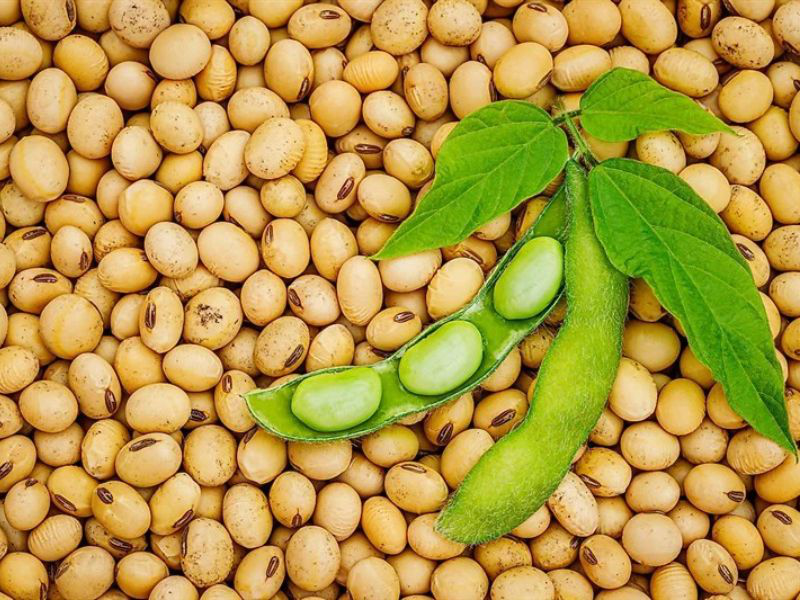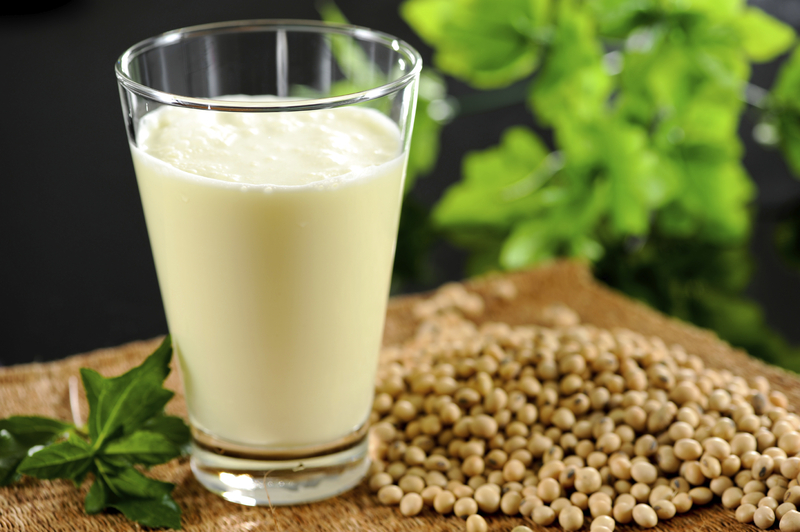Soybeans are a nutritious food, often recommended in a healthy diet. However, many people are concerned about whether people with thyroid disease should avoid soybeans or not. This article will provide detailed information about the effects of soybeans on thyroid health, thereby helping patients and their families better understand how to choose the right foods, ensuring a balanced and safe diet.
What is thyroid disease?
The thyroid is a small, butterfly-shaped endocrine gland located in the front of the neck, just below the Adam’s apple. The thyroid gland produces the hormones thyroxine (T4) and triiodothyronine (T3), which play an important role in regulating many body functions such as metabolism, body temperature and heart rate.

Thyroid disease often has many dangerous complications
Here are some common thyroid diseases:
- Hyperthyroidism: Hyperthyroidism occurs when the thyroid gland produces too much hormone.
- Hypothyroidism: Hypothyroidism occurs when the thyroid gland does not produce enough hormone.
- Goiter: Goiter is an abnormal growth of the thyroid gland. Goiter can be benign or malignant (cancerous).
Nutritional value of soybeans
Soybeans (also known as soybeans, big beans) are a plant in the legume family (Fabaceae), originating from East Asia. This plant is grown mainly for its seeds, which are a nutritious food source and have many health benefits.

Soybeans provide high nutritional value
Here is a summary of the nutritional value of soybeans:
- Abundant protein: Soybeans are a rich source of vegetable protein, second only to animal meat. 100g of boiled soybeans contain up to 36g of protein, 3 times higher than rice and 2 times higher than corn. The protein in soybeans has all the essential amino acids, necessary for the human body.
- Good fats: Soybeans contain mainly monounsaturated and polyunsaturated fats, which are beneficial for cardiovascular health. Monounsaturated and polyunsaturated fats help reduce bad cholesterol (LDL) and increase good cholesterol (HDL), helping to reduce the risk of cardiovascular disease and stroke.
- Rich fiber: Soybeans are a rich source of fiber, helping to support the digestive system to function effectively, prevent constipation, and reduce the risk of colon cancer.
- Vitamins and minerals: Soybeans contain many vitamins and minerals necessary for the body such as vitamins B1, B2, B3, B6, folate, iron, magnesium, phosphorus, potassium, zinc, etc. Vitamin B helps convert food into energy, supporting the nervous system. Iron helps transport oxygen in the blood. Magnesium helps regulate blood pressure, nerve and muscle function. Phosphorus helps protect bones and teeth. Potassium helps regulate blood pressure, heart function. Zinc helps strengthen the immune system.
- Isoflavone: Isoflavone is a plant compound with a structure similar to estrogen, which can help reduce the risk of breast cancer, prostate cancer and osteoporosis in postmenopausal women.
- Antioxidants: Soybeans contain many antioxidants such as polyphenols and vitamin E, which help protect the body from the harmful effects of free radicals, reducing the risk of cardiovascular disease, cancer and other chronic diseases.
Should people with thyroid disease avoid soybeans?
The question of whether people with thyroid disease should avoid soy is always a topic of interest to many people.
Currently, there is still no clear scientific evidence to confirm that people with thyroid disease need to completely avoid soy.

Can people with thyroid disease avoid soy?
However, some studies have shown that consuming too much soy (about 100g per day) can affect thyroid function in some people, especially those with autoimmune thyroid disease (such as Graves’ or Hashimoto’s disease).
The mechanism by which soy affects the thyroid is not fully understood. Some hypotheses suggest that:
- Isoflavones in soy have a structure similar to the hormone estrogen, which may affect thyroid hormone production in some people.
- Soybeans contain some thyroid inhibitors, which can reduce the body’s ability to absorb iodine, a mineral necessary for thyroid hormone production.
Therefore, people with thyroid disease should consult their doctor before using soy.
Notes on using soy for thyroid disease
Although soy is a nutritious food and has many health benefits, people with thyroid disease need to pay attention to some things when using it.
Usage
- Soybeans should be consumed in moderation, not exceeding 100g per day.
- This amount is equivalent to about 1 box of soy milk (250ml), 1 piece of tofu (100g), or 30g of natto.
How to prepare
Some good ways to prepare soybeans for people with thyroid disease include:
- Cook soybeans thoroughly before eating.
- Ferment soybeans into products such as natto, tempeh.
- Use soy products that have been isolated from isoflavones.
Consult a doctor
Thyroid patients, especially those with autoimmune thyroid disease (such as Graves’ disease or Hashimoto’s disease), should consult a doctor before consuming soybeans.
Hopefully, the above article has answered the question “Should people with thyroid disease avoid soybeans?” for readers in the most specific and detailed way. By following the above notes, people with thyroid disease can use soybeans safely and effectively, while still ensuring overall health.





